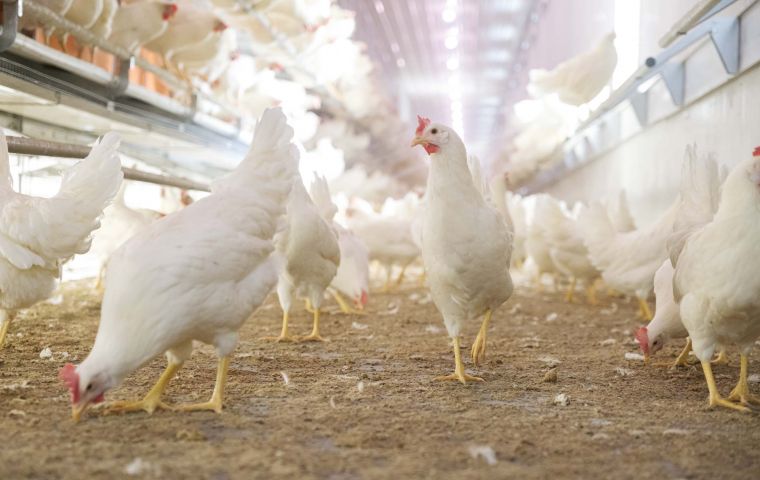MercoPress. South Atlantic News Agency
Falklands strict protocol in case of Avian influenza reaching the Islands
 Measures call to be aware that as birds return from their winter migrations it's likely that cases of Avian Influenza will be found in the Falklands.
Measures call to be aware that as birds return from their winter migrations it's likely that cases of Avian Influenza will be found in the Falklands. The Falkland Islands government and Falklands Conservation have announced a series of precautionary measures in the event of an outbreak of Avian influenza that has spread in European countries.
The measures call on the local population to be aware that as birds return from their winter migrations it's likely that cases of Avian Influenza will be found in the Falklands. “To keep yourselves safe and reduce the impact of the flu on our wildlife please use this quick guide to spotting, preventing and dealing with cases”.
Bird Flu: Know the Facts DON'T TOUCH them Keep your distance Note the location and nature of your observations, take photos if possible Leave the area, ensuring that your boots and clothing are cleaned and disinfected as soon as you can REPORT to the FIG Veterinary Service
If you see dead or sick birds: Bird Flu, or Avian Influenza is a disease which has caused hundreds of thousands of seabird deaths in the northern hemisphere. It is possible it could reach the Falklands with migratory birds, or on people arriving with infected footwear, clothing and equipment. If it arrives, it could have major impacts on our wildlife and domestic poultry.
Sudden and rapid increase in birds found dead Loss of coordination and balance Trembling head and body Lethargy Respiratory distress Twisting of head and neck Swollen head Look out for dead or sick birds.
Avian influenza has devastating consequences for the poultry industry, farmer’s livelihoods, international trade, and the health of wild birds, and has captured the attention of the international community over the years, according to the World Organization for Animal Health.
Where outbreaks occur, it is often the policy to cull all poultry, whether infected or healthy, to contain the spread of avian influenza. This represents heavy economic losses for farmers and a long-lasting impact on their livelihoods.
But poultry is not the only impacted. While they play a major role in the spread of the disease, wild birds also become victims of bird flu viruses. Avian influenza is also a major concern for public health. Whenever avian influenza viruses circulate in poultry, sporadic cases of avian influenza in humans are sometimes identified, concludes OIE..




Top Comments
Disclaimer & comment rulesCommenting for this story is now closed.
If you have a Facebook account, become a fan and comment on our Facebook Page!